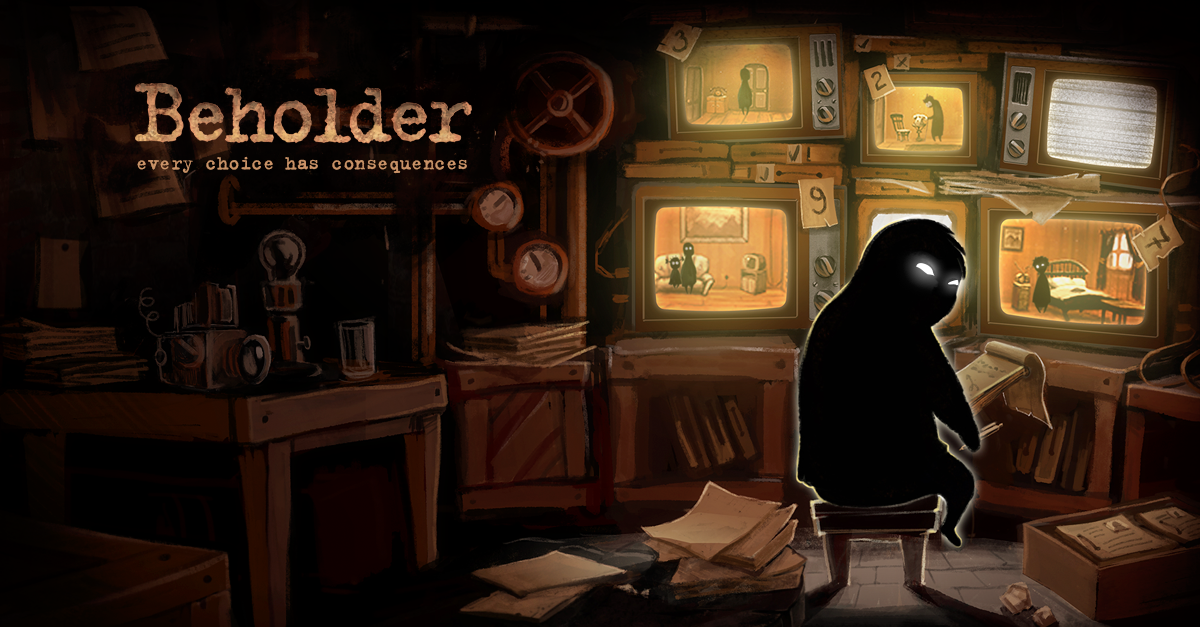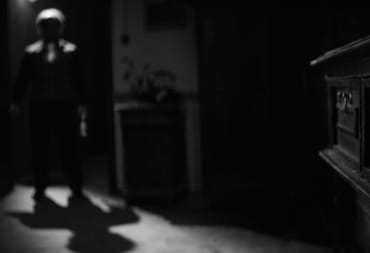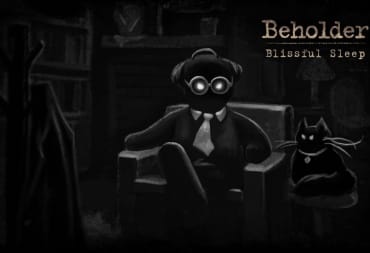1984 (the book, not the year) is one of those classics of modern literature that is often referenced outside of its original context. The dystopian society that Orwell described was the extremization of some of the worries about the abuse of power that governments can practice on common people and their privacy.
More than six decades have passed since the novel’s first publication. In today’s society, the concerns 1984 raised are more actual than ever. It’s only natural that a work of literature like that would spawn work in other art forms as well. In video games, we saw it happen a couple of times already. Beholder is the latest game inspired by Orwell’s Magnum Opus.
Beholder takes place in a war-torn country reminiscent of Cold War-era East Germany. Players take the role of Carl Stein, a man put in charge by the government to manage an apartment building. However, in Beholder this line of work is a bit different than the usual. Instead of collecting rent from tenants and doing maintenance work, Carl’s main responsibility is to keep an eye on his tenants and report any illegal or insurgent behavior to the authorities. Basically, Carl is paid to be a puppet.
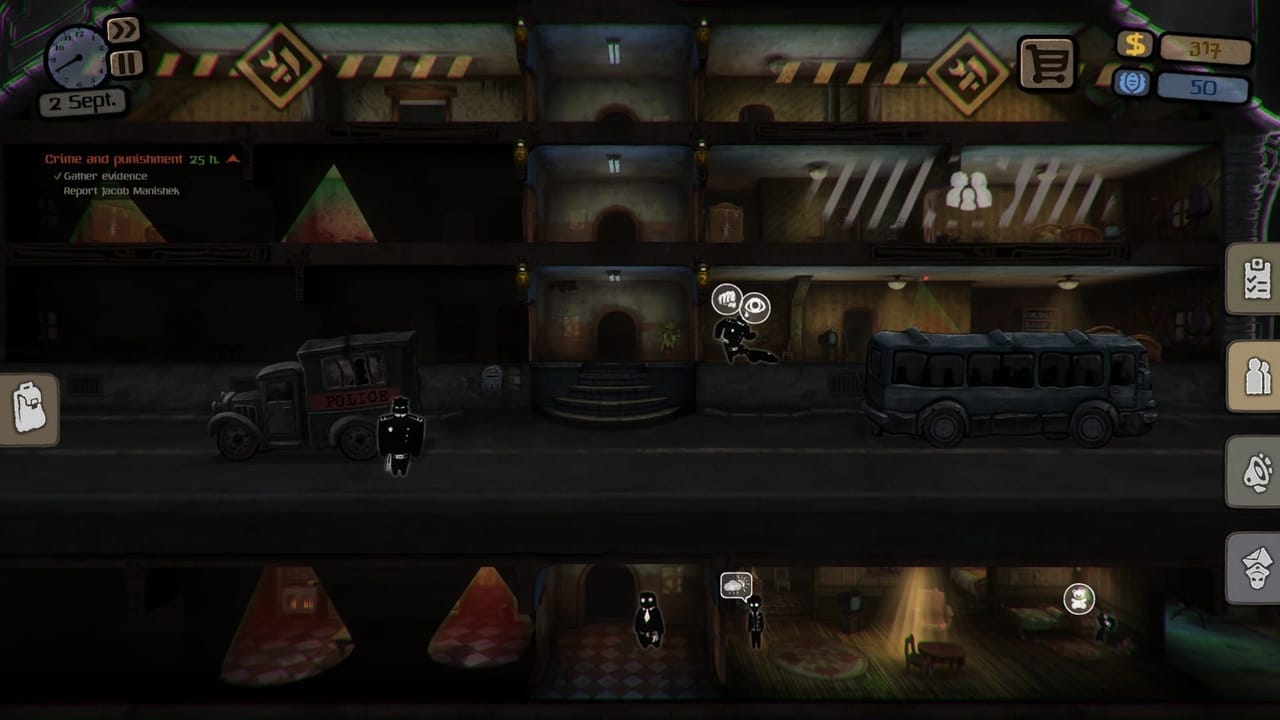
Carl has several ways to please his government overlords. He can install cameras in his tenant’s apartments in order to catch them when they’re doing something they shouldn’t, or he can sneak in their house and look around to find an illegal object (or even steal some of their stuff to sell to gain some extra money).
You have two currencies in the game: money and reputation. You use money as you would expect, paying bills and fines, buying stuff from the merchant, and corrupting people if needed. Reputation is gained by pleasing the government and is spent to purchase cameras to install in apartments or to unlock some dialogue options. For example, in some instances, you want to convince a tenant to do something for you and you’ll have a choice to corrupt him or to use some of your reputation points to force them to see things from your perspective.
Unfortunately, the life of a government shill is not easy. When the first bills to pay come in, your daughter gets ill and your son asks you for money to pay for university. It becomes pretty clear that you have to choose whether you stay the path of legality and patriotism (and nationalism) or bend the rules in order to care for your family.
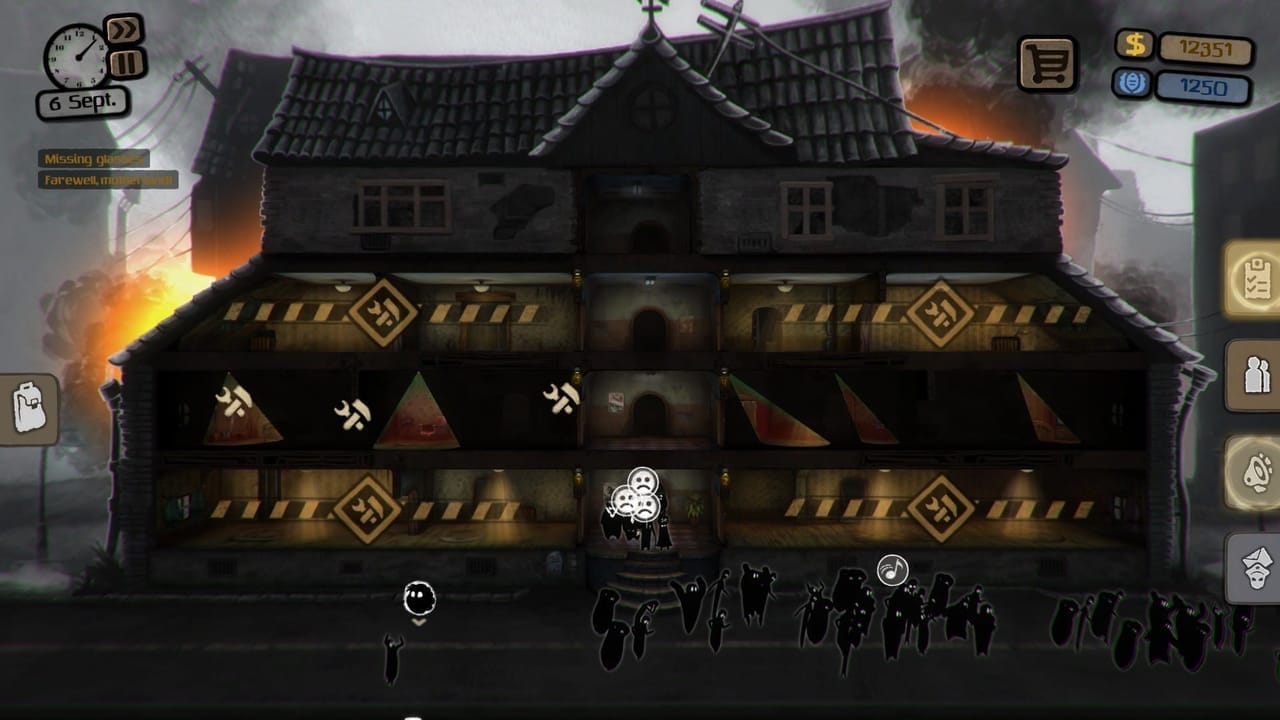
Any member of your family, or yourself, can and will die as a result of Carl’s actions. Beholder is a ruthless game under that aspect. To keep your family healthy and happy, you’ll need a lot of money, much more than you can earn with your job. This is when Beholder approaches the moral dilemma territory and where it really shines.
There are multiple ways to approach most of the problems in the game, most of which will test your moral fiber. For example, you may find an illegal object in a tenant’s apartment and decide to blackmail him instead of reporting it to the authorities. Blackmailing someone will earn you more money than reporting him but no reputation. Maybe you decide to report him anyway after he paid in order to get the money from the government and legally put your hands on the stuff he once owned. Maybe you plant fake evidence under their bed in order to have him arrested (for example because another tenant promised you some money if you did). Beholder presents you plenty of occasions to lie, cheat, rob, and generally be a horrendous human being for the good of yourself, your wife, and your children.
Another possibility is to help the resistance. Well, help may be a bit of a stretch. If you give them a hand once, you basically become their tool forever. It’s not so bad since they pay you quite a lot more than the government, but Carl will be in danger of being charged with treason at any given time. The resistance will also ask for a lot of favors since your building seems to be a magnet for government personalities, double agents, spies, and the like.
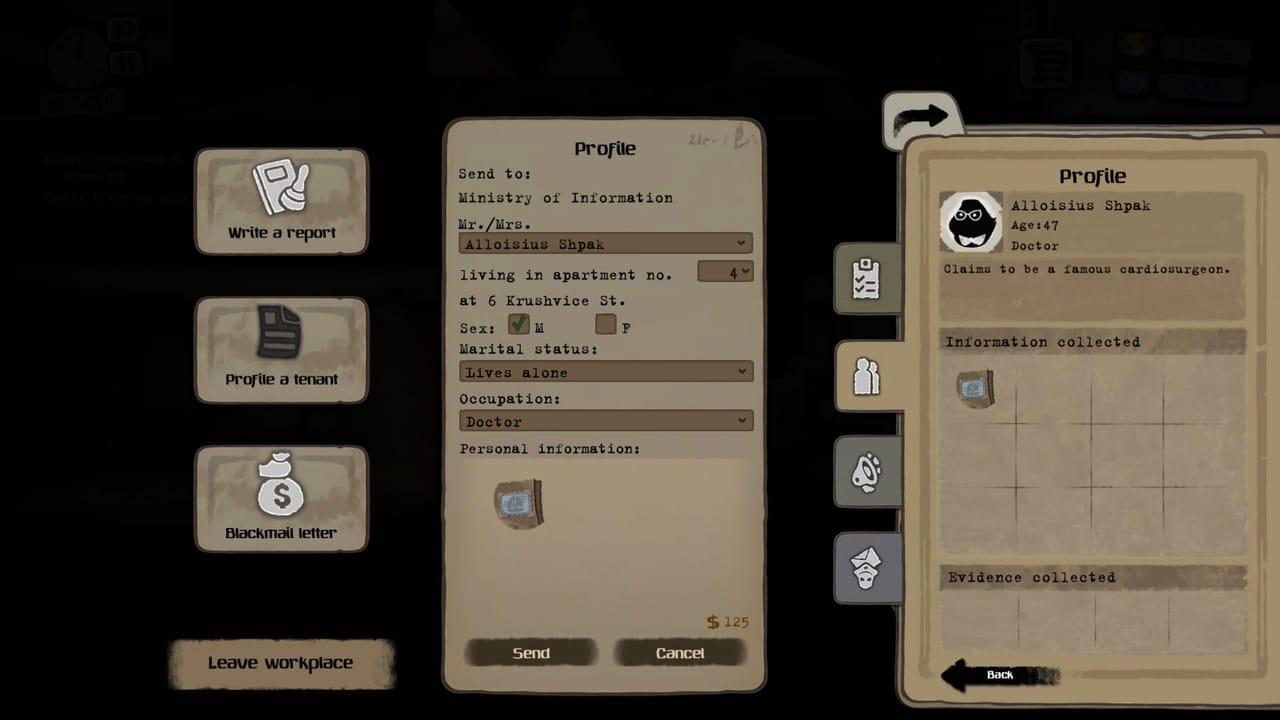
The game does a quite good job of giving you stuff to do without feeling too overwhelming. You will usually have at least a couple of active quests, but the time limits are lenient enough to give you a chance to come up with a way to approach all of them, while also not allowing you relax too much.
Beholder reminds me a lot of Papers, Please. In both games, you are given a choice to act illegally or, in any case, against the rules in order to care for your family and your personal being. When you slide down the path of corruption and have to face the consequences, you realize that the game didn’t force you to act that way, but you did it out of your own volition. That’s a powerful feeling.
The game is not perfect, though. One of the main problems is that sometimes Beholder seems to lack situational awareness. For example, during one playthrough, I managed to send Carl’s son out of the country but his daughter died of illness days before he left. In a postcard, Carl’s son says to tell his little sister that oranges really exist and they have the same color of carrots, apparently forgetting that he attended her funeral not long before. There are a few more examples like that. Nothing game-breaking but surely immersion breaking.
Beholder's art style is simple and efficient. Characters are depicted with black silhouettes with white features. While all the characters are basically black blobs, the shape and highlights of each one are designed so you can tell each of them apart at a glance. Being able to tell where everyone is while you're in a tenant's apartment planting a camera in a fire detector makes distinguishing everyone very important. This task is also made easier from the camera perspective that will allow you to keep the whole building on one screen when needed while also giving the possibility to zoom really close to the action.
Beholder, as said before, is a game of moral choices. There are quite a few branching paths that you can take that will lead to a number of different endings. This gives the game a lot of replayability, although not infinite. There’s no procedural generation in Beholder. The events are scripted and will happen in the same order every time. You have some control on what events trigger by deciding what course of action to take and who gets to move in a free apartment, but there are only so many possibilities. Still, there is enough room to experiment to keep you busy and entertained for many hours.
While not perfect, Beholder does a great job of recreating the struggle of a man who has to put a lot of things in balance to preserve a hint of dignity despite the things he has to do just to carry on. Its easy yet deep gameplay and the way it manages the philosophical nature of the theme makes it worth the price tag.
Beholder was reviewed on PC via Steam using a copy provided by the developer.
Review Summary
Beholder is a game where the simple mechanics are just the tip of the iceberg. The game bombards the player with hard moral choices in a world where every decision may have dire consequences.
(Review Policy)Pros
- Simple Yet Engaging Mechanics
- Good Replayability
- Good Choices and Consequences System
Cons
- Sometimes Lacks Situational Awareness
- Heavily Scripted
Have a tip, or want to point out something we missed? Leave a Comment or e-mail us at tips@techraptor.net
